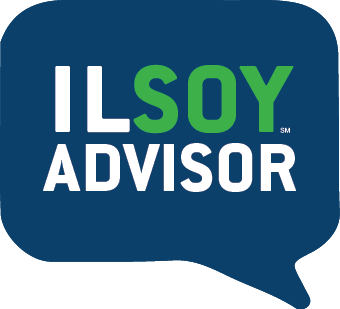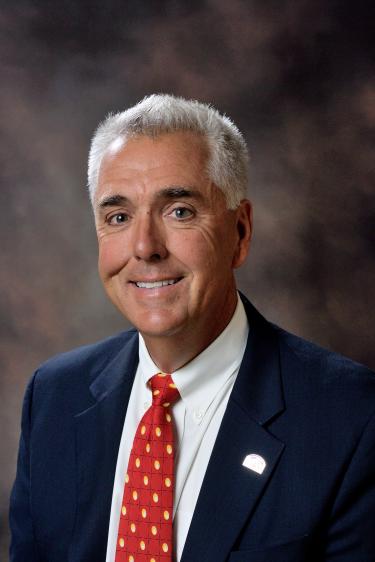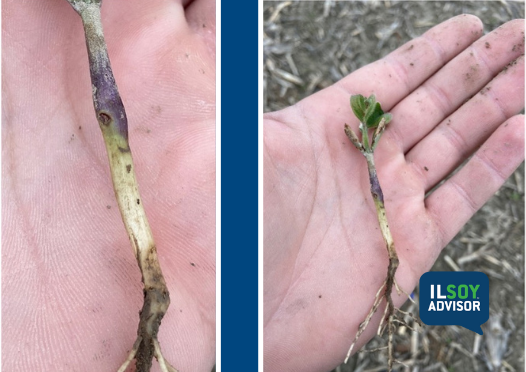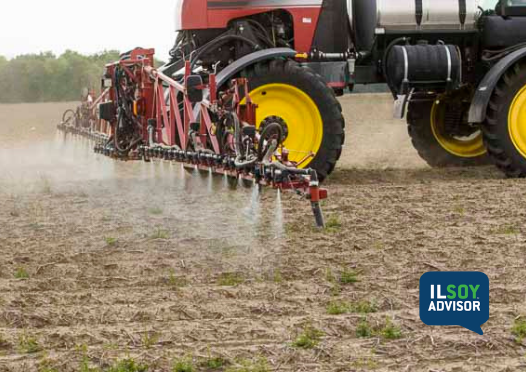If I were to ask the question, “What are the two largest management factors that come to mind when you hear soybean management factors?” What would your answer be? For myself, the top two things that come to mind are early planting date (late March and April) and herbicide resistance.
Early planting date has arguably been the biggest soybean yield driver because of the increased number of days before the plant starts to flower. This allows... Read More →
ILSOYADVISOR POST
Make A New Year's Resolution to Manage Farm Risk
January 16, 2020
At the top of most Americans’ New Year’s resolutions are things like eating healthier, exercising more and losing weight. Being health-conscious coming into the new year is a great way to get started on the right foot. But beyond physical health, it’s also a great idea to place the health of your finances, business and crop management practices on your resolution list, too.
We start each year with an idea of what we hope to achieve and how we want our businesses to operate. Although we can’t predict every factor that will affect our farms, we can start the year with a list of goals to shoot for.
I don’t think anyone expected to have such a short growing season in 2019 or that trade with China, or lack thereof, would shift the marketplace so significantly. That’s why managing risk is at the top of my New Year’s resolutions. By taking proactive measures to manage what we can, growers like you and me are able to soften the impact of stressors.
So, how do you manage risk? There are a number of ways you can protect your farm from unpredictable factors. One simple way is to continually stay up to date on farming practices and agronomic tips.
The Illinois Soybean Association (ISA) recognizes the value in continued learning. That’s why the Illinois soybean checkoff program funds Soybean Summit, a free one-day ILSoyAdvisor event for growers. This year’s conference will be held March 10 in Springfield, Illinois.
Producers and production industry participants will hear from experts on a variety of topics ranging from in-season agronomics to agribusiness management practices and ag technology advancements that could help find efficiencies and increase on-farm profitability. Certified Crop Advisers can earn CEU credits at qualifying breakout sessions.
Throughout the year, listening to ILSoyAdvisor podcasts and webinars is another easy way to learn how to overcome challenges like soil compaction, soybean stress and other crop risks. Through continuous learning, you have the opportunity to advance your on-farm practices. But beyond this, there are experts who can help you manage risk as well. Building an advisor team that includes a banker, crop insurance expert, local co-op supplier and any other trusted individuals can help your farm become more profitable.
Bringing trusted advisors into your farm plans can help you mitigate risk and develop strategies for unfavorable events. You and I both know that it’s not a matter of if something adverse will happen, it’s when. So, being proactive can pay off in the end both through greater profit and less stress and worry.
Here are a few risk management practices to add to your list of New Year’s resolutions:
- Upgrade or purchase on-farm technology to capitalize on agronomic opportunities
- Create a succession plan to prepare your farm and assets for the next generation
- Invest in a comprehensive crop insurance plan to protect you against unpredictable factors
- Subscribe to ILSoyAdvisor weekly updates to tap into resources and find actionable information on the best farming practices
Wishing you a happy and successful 2020. Don’t forget to start the new year off right by registering for Soybean Summit at www.ILSoyAdvisor.com/SoybeanSummit.





Comments
Add new comment